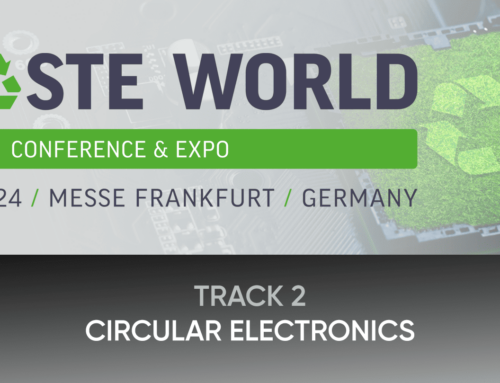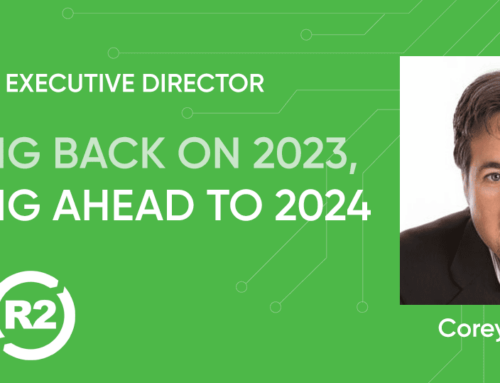For more than a decade now, the world has actively been trying to combat the growing e-waste challenge. And for the bulk of that time, most of the thinking has centered around trying to protect the environment by managing waste at the end of life and on materials recovery through recycling.
But this is flawed thinking. Even if there was the global capacity to keep up with the growing number of electronics being discarded each year (which there isn’t), we would still only be managing e-waste at the end of life, which means we’re dealing with waste after it’s already been created. We would never actually eliminate e-waste. We’d never get to electronics sustainability and could never realize a circular economy.
Now having been in the thick of trying to address this challenge since the early 2000s from the beginnings of what would become the R2 Standard, SERI’s thinking has significantly evolved. We recognize that the challenge doesn’t start at the end of life but at the beginning and then continues all the way through the electronics lifecycle. Getting to zero e-waste will require making different materials and design choices, increasing repair and refurbishing options, creating longer first lives for electronics and then ensuring they have good second and third lives, and then at the end, making sure all devices are responsibly recycled, that all usable materials become part of something else, and that all toxins are safely captured and contained.
No one group deserves the blame for where we are today, but we all have the responsibility to become part of the solution. And that’s why SERI has taken on the role of convener, to bring all these parties into the discussion, into the workgroups, and into the collaboration. And we’re leading the world to ReThink e-waste and our relationship with electronics.
One example of this ReThinking is the work we are doing along with the E-Waste World Conference & Expo, held annually in Frankfurt, Germany. Billed as “Europe’s Leading Event for Electronics Recycling,” the conference presents four tracks – E-Waste & WEEE Recycling, Battery Recycling, Metal & Critical Raw Material Recycling, and Circular Electronics, Remanufacturing, & ITAD. But even within that last track, the conversation traditionally focused on end-of-life solutions.
This year, SERI collaborated with the conference to bring a whole-lifecycle approach to the Circular Electronics, Remanufacturing, & ITAD track. The two-day event follows the electronics lifecycle, beginning on Day 1 with design and the First Use Phase with highlights including Petri Hayrynen from HMD Global, Padraig Murphy from Logitech, Monique Lempers from Fairphone, and sessions from Circ.eco, SIMS Lifecycle Services, TES, Carbon Mobile, and TCO. Then it’s on to the Evolution of Electronics Repair with Kyle Wiens of IFIXIT, Jan Hoogstate from Free ICT, Michelle James of CTIA, and Carlo Alberto Rolando of iRiparo.
Day 2 kicks off with the Repurpose and Reuse phase with sessions from Accenture, London South Bank University, Seagate, ADISA, EPS, The Refurb Company, ASCDI, Global Resale, SIMS, and Iron Mountain. The track rounds out with the topic of Selling Used with sessions from Back Market and eBay. SERI’s Executive Director Corey Dehmey will emcee the track and deliver a tone-setting session on Rethinking Electronics.
In addition, SERI is coordinating two free-to-attend pre-conference workshops for learning and networking. The first, Leveling Up Trust in the Mobile Repair Space, is in conjunction with CTIA and geared toward the mobile repair facilities. The second, Sustainable IT Equipment Resale – The Future of IT Asset Disposition (ITAD), is in conjunction with ASCDI and is intended for IT resellers, refurbishers, and brokers involved in reusing IT equipment. Anyone interested in attending can learn more here.
But our ReThinking conversations go well beyond just this one conference. Just take a look at all the conferences throughout the year where we are attending, speaking, and exhibiting, and you’ll see all the different stakeholder groups we’re challenging to ReThink their role in achieving electronics sustainability and the decisions we’re asking them to make along the way.





